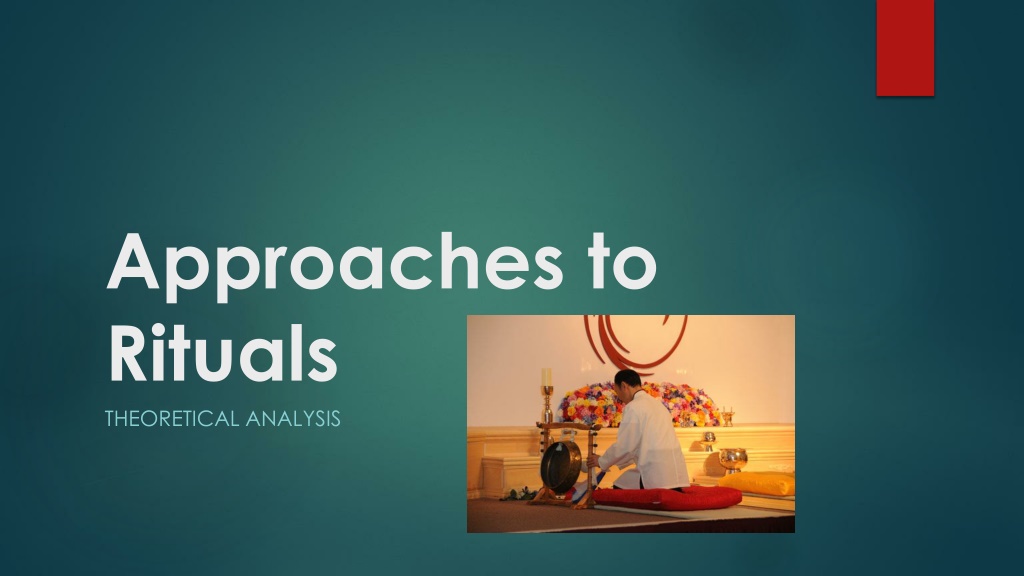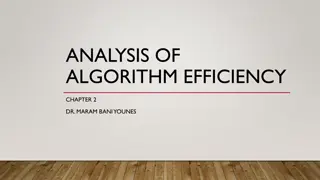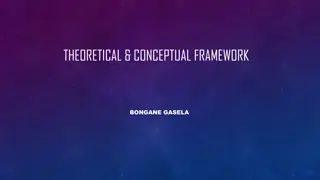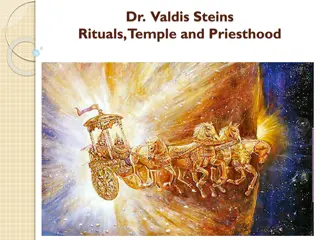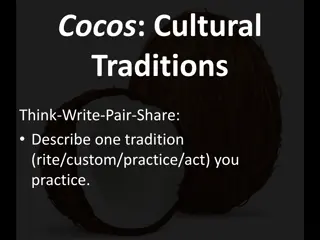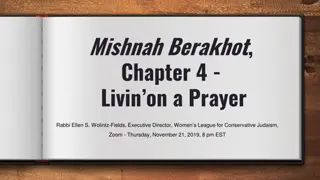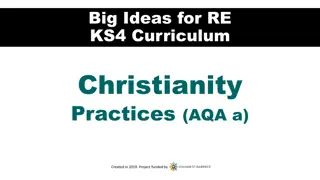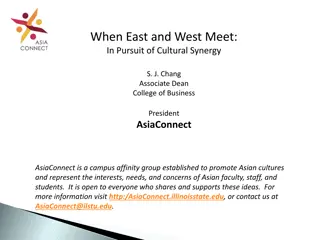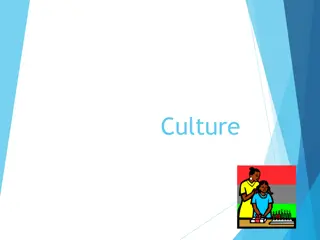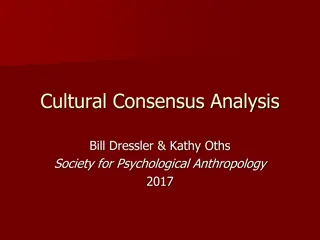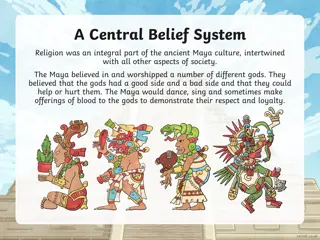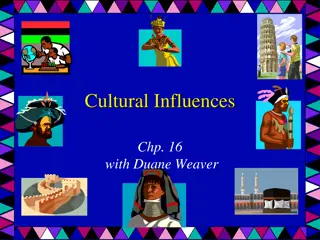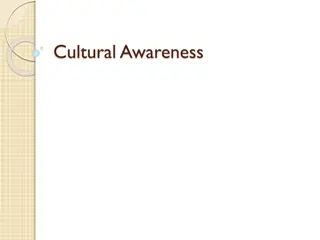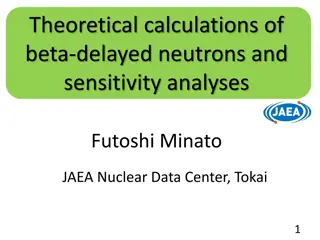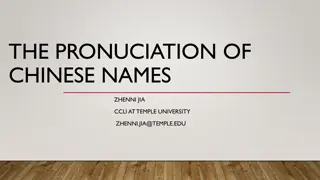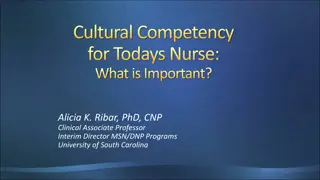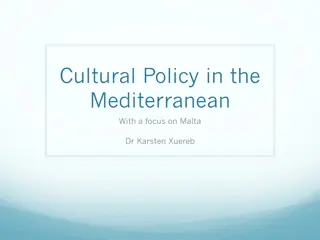Understanding Different Types of Rituals: Theoretical Analysis and Cultural Significance
Explore various types of rituals, from secular to religious, and their deeper meanings through symbolic actions and objects. Discover the diverse needs for rituals, including food rituals, warmth, purification, and maintaining order. Delve into the significance of different kinds of rituals like rites of passage, crisis rites, celebration, worship, and more, shedding light on their cultural importance and societal functions.
Download Presentation

Please find below an Image/Link to download the presentation.
The content on the website is provided AS IS for your information and personal use only. It may not be sold, licensed, or shared on other websites without obtaining consent from the author. Download presentation by click this link. If you encounter any issues during the download, it is possible that the publisher has removed the file from their server.
E N D
Presentation Transcript
Approaches to Rituals THEORETICAL ANALYSIS
Secular Ritual Religious Ritual Deeper Meaning of Ritual Symbolic actions and objects
The Need for Ritual Food ritual killing of animals, hunting Eg. Ainu (Japan), North American Indian Tribe bear rituals Warmth/Shelter Bolivian Witches Market Companionship daily social rituals (movies) Communication - Catholic Communion Purification Hindu Kumb Melha Festival Pacification Funeral / Burial Hindu Ceremony Maintain Order Initiation Ceremonies Indigenous Australians
What kinds of rituals? Rites of passage: North American girls Coming of Age Crisis Celebration Worship
Rites of Passage A ritual marking a time when the status of an individual changes: ritual dramas of birth, initiation, marriage and death: largely individual oriented Non-recurrent. Anticipated. Bar Mitzvah Graduation 21stBirthday
Calendrical Rites Cyclical Organised by community Turning points of socio-economic seasons Eg. New Year ritual: Group oriented Recurrent linking people with social world Anticipated with entrances and exits.
Diwali Diwali is certainly one of the biggest, brightest and most important festivals of India. While Diwali is popularly known as the "festival of lights". The celebration of Diwali as the "victory of good over evil" refers to the light of higher knowledge dispelling all ignorance. While the story behind Diwali and the manner of celebration of the festival differ greatly depending on the region, the essence of the festival remains the same - the celebration of life, its enjoyment and goodness.
Crisis Rites Rituals performed at times of hardship (sickness, drought, flood, social anxiety)
Celebration Celebrates special events and dates (Christmas)
Worship Rituals that worship a God or Gods. Usually involves some kind of prayer.
Lovat Read pg. 27 Beginning, Middle, End approach - 5 steps
Structure of Ritual: Terence Lovat Climax: Experience of a central highpoint Preparation: Preparatory rite/activity Celebration: Joins in a celebration of the ritual Entry: Leave the ordinary world and enter the ritual Return: Leaves the ritual and returns to ordinary world
Structure of Haka (during a football match) The performing of the Haka The crowd and the team celebrate Get into formation Find positions for kick off Walk onto field
Task Think of a secular ritual and a religious ritual. Complete Lovat s pyramid for the two rituals
Arnold van Gennep: Read Pg 26 Text Mainly for rites of passage rituals (a ritual where someone transitions from one stage of life to another) Pre-liminal: Separating from the previous life Liminal: Transitioning from one stage to another Post-liminal: A new status or state of life
Gennep Example for a surgical operation:
Task Break down the crocodile skin ritual into the three phases. Pre-liminal: Separating from the previous life Liminal: Transitioning from one stage to another Post-liminal: A new status or state of life
Task Break down this transition into the following three phases. Going from Primary school to High school
Victor Turner Text p.26 3 Meanings: 1. Exegetical (subjective) explained by person performing the ritual 2. Operational (objective) observable by the outsider; purpose of the ritual in society 3. Positional symbols used & relationships between them.
Liminality: Looks at what different people experience in the liminal phase
Rituals in World Religions Questions: Why do you think there have been attempts throughout history to deny a role for ritual in religion? Why do you think religion invests so much energy into ritual? Define in your own words the following group rituals and give examples: Totemic Calendrical Ceremonial Rites of Passage Crisis Rites 1. 2. 3. 1. 2. 3. 4. 5.
